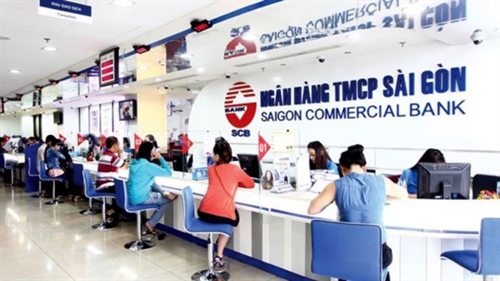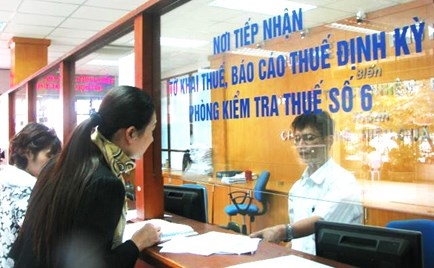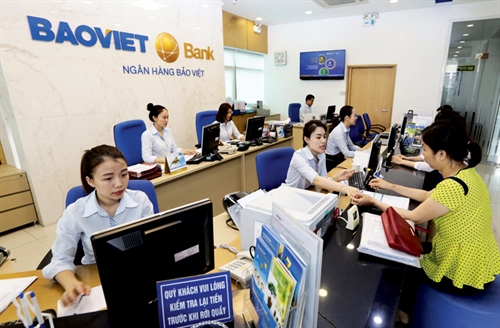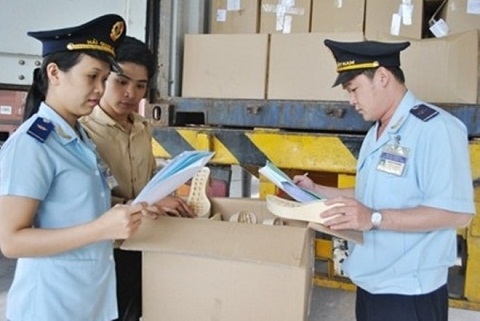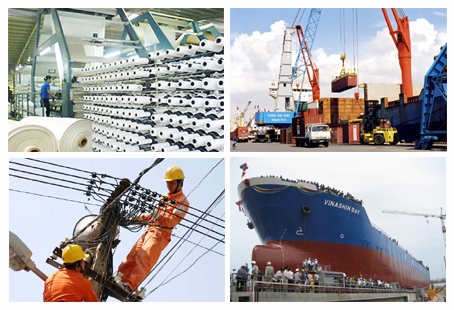Bui Duc Giang
PhD in law[1]
Under the legislation on investment, the provision of logistics services qualifies as a conditional business line. The current legal framework applicable to logistics services was enacted in line with the Schedule of Specific Commitments in Services resulting from the negotiations between Vietnam and WTO members.
Definition and classification of logistics services
Pursuant to Article 233 of Commercial Law 36/2005/QH11 dated June 14, 2005 (Commercial Law), “logistics service means a commercial activity whereby a trader[2] organizes the performance of one or more tasks, including receipt of goods, transportation, warehousing, storage, completion of customs procedures and other documentation procedures, providing advices to customers, packaging goods and labelling them with appropriate codes, delivery of goods or other services relating to goods under an agreement with a customer against remuneration.”
Article 4 of Decree140/2007/ND-CP dated September 5, 2007, detailing the Commercial Law regarding conditions for provision of logistics services and caps on liability of logistics service providers (Decree 140) distinguishes the following three categories of logistics services:
- Principal logistics services, including services of arranging pickup and loading of goods, including arranging pickup and loading of goods into containers; goods warehousing and storage services, including the business of warehousing in containers and storage for processing raw materials and equipment; transportation agency services, including agency in carrying out the customs procedures and preparing plans for unloading goods; and other subsidiary services including (i) receipt, archive and management of information about transportation and storage of goods throughout the entire logistics process, (ii) reprocessing of goods returned by customers, reprocessing of goods in storage and out-of-date or old-fashioned goods and redistribution of such goods, and (iii) lease and hire-purchase of containers.
- Logistics services relating to transportation, including sea transportation services, inland waterways transportation services, air transportation services, railway transportation services, road transportation services, and pipeline conduit services.
- Other related logistics services, including services of technical inspection and analysis, postal services, wholesale commercial services, retail commercial services, including also activities of managing goods in storage, collecting goods from various sources, assembling and classifying goods, and redistributing and delivering them, and other services ancillary to transportation.
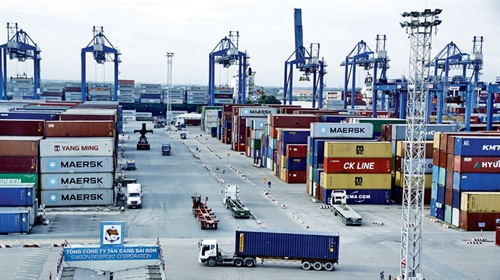 |
Foreign investment in logistics services
Article 234.1 of the Commercial Law provides a general principle that a logistics service provider must be an enterprise satisfying all the law-prescribed conditions for providing logistics services.
Under Articles 5, 6 and 7 of Decree 140, in order to engage in the provision of logistics services, a trader must satisfy the following conditions:
- Being an enterprise lawfully established in accordance with Vietnamese law; and
- Having adequate facilities, equipment and working facilities which ensure technical standards and safety criteria, and a team of staff who satisfy the relevant requirements on principal logistics services, or satisfying the conditions applicable to the transportation business as prescribed by Vietnamese law in case of logistics services relating to transportation.
| No. | Types of service | Form of investment | Cap on contribution to the charter capital by foreign investor(s) | Notes |
| Principal logistics services | ||||
| 1. | Loading and unloading of goods | Joint-venture company | 50% | |
| 2. | Warehousing | |||
| 3. | Transportation agency | Joint-venture company | No cap on the percentage of capital contributed by the foreign partner to the joint venture | |
| 4. | Other subsidiary services | |||
| Haulage[3] · It is not possible to provide pipeline conduit services, unless otherwise provided by a treaty to which the Socialist Republic of Vietnam is a contracting party. | ||||
| 5. | Sea transportation | |||
| 6. | Inland waterways transportation | Joint-venture company | 49% | |
| 7. | Air transportation | Joint-venture company | 30% (Article 8.3(a) of Decree 92/2016/ND-CP dated July 1, 2016, regulating the conditional business lines in civil aviation | At least one Vietnamese individual or one Vietnamese legal entity must hold the largest portion of the charter capital. If the Vietnamese legal entity has foreign investment capital, then the foreign capital contribution portion must not exceed 49% of the charter capital of such legal entity (Article 8.3(b) of Decree 92) |
| 8. | Railway transportation | Joint-venture company | 49% | |
| 9. | Road transportation | Joint-venture company | 51% | |
Other related logistics services:
| ||||
| 10. | Technical inspection and analysis | In case of services provided in order to exercise authority of the Government, they may only be provided in the form of a joint venture after five years from the date on which the enterprise is permitted to provide such services. | ||
It can be inferred from the table aside that foreign investment in logistics services in Vietnam must be in a majority of cases in the form of a joint venture with a Vietnamese partner.
Service charge
Under Article 235.1(a) of the Commercial Law, the service provider is entitled to remuneration for logistics services and refund of other reasonable expenses.
The customer must pay the service provider all reasonable expenses incurred by the service provider if it has followed all the customer’s instructions (Article 236.5 of the Commercial Law).
Compliance with the customer’s instructions
Article 236.1 of the Commercial Law requires that the customer provides sufficient instructions to the service provider.
If, during the performance of a logistics services contract, there is a plausible reason for acting in the customer’s interests, the service provider may perform the contract at variance with the customer’s instructions provided that immediate notice is given to the customer (Article 235.1(b) of the Commercial Law).
Furthermore, if any event occurs and results in the non-performance of all or several of the customer’s instructions, the service provider must give an immediate notice to the customer requesting further instructions (Article 235.1(c) of the Commercial Law).
Caps on liability for loss
Under Article 238.1 of the Commercial Law, unless otherwise agreed by the parties, the entire liability of the logistics service provider must not exceed the cap on liability for loss for all the goods.
Article 8 of Decree 140 specifies caps on the service provider’s liability for loss incurred in the course of performing its logistics services as follows:
- The cap on the liability of a logistics service provider relating to transportation shall be set out by relevant regulations on caps on liability in the transportation sector.
- The cap on liability of a logistics service provider falling outside the scope outlined in Point 1 above shall be agreed upon by the parties. In the absence of agreement, the matter shall be regulated as follows: (i) in case the customer has not provided prior notice of value of the goods, then the maximum liability shall be VND 500 million applicable to each claim for compensation; (ii) in case the customer has provided a prior notice of value of the goods and this was certified by the service provider, then the cap on liability shall be the entire value of the goods.
- In case a service provider carries out a number of work stages which are subject to different caps on liability, then the cap on liability shall be the highest cap.
However, it should be noted that under Article 238.3 of the Commercial Law, the service provider is not entitled to those caps on liability if the person having related rights and interests is able to prove that (i) the loss, damage or late delivery of the goods was caused by the deliberate action or inaction of the service provider with the intention of causing such loss, damage or late delivery; or (ii) the service provider’s action or inaction was taken recklessly with the knowledge that such loss, damage or late delivery would certainly occur.
Exclusions
Under Article 237.1 of the Commercial Law, in addition to the general cases of exemption from liability specified in Article 294 of this Law[4], the service provider is not liable for loss caused to the goods in any of the following cases:
- The loss was due to fault of the customer or its agent;
- The loss arose because the service provider was acting in compliance with instructions of the customer or its agent;
- The loss was due to defects of the goods;
- The loss arose in the cases of exemption from liability specified by the transportation legislation or practices in case of provision of transportation services;
- The service provider has not received a notice of claim within 14 days from the delivery by the goods provider to the recipient;
- After a claim has been made, the service provider has not received within nine months from the delivery of the goods a notice of arbitration or court proceedings having been brought against it.
It is noteworthy that the service provider may impose other exclusions in the logistics services contract and this is valid under Articles 237.1 and 294 of the Commercial Law. Therefore, the customer has to check whether those exclusions are acceptable to it or not.
Service provider’s lien
Article 239.1 of the Commercial Law gives the service provider the power to retain a specified quantity of goods and documents relating to them until full payment of outstandings owed by the customer provided that a notice to that effect is given to the customer.
Furthermore, Article 239.2 of the Commercial Law expressly extends the enforcement rights of the service provider provided by the general law[6] by giving it a power of sale over the goods on default by the customer provided that notice of the sale is served on the customer.-
1. The party in breach is exempted from liability in any of the following cases:
a) Upon occurrence of any event which the parties have agreed will give rise to exemption from liability;
b) Upon occurrence of a force majeure event;
c) Where the breach by one party was totally due to the other party’s fault;
d) Where the breach by one party was due to the implementation of a decision issued by a competent state authority which the parties could not have known of at the time of entering into the contract.
[...]”

